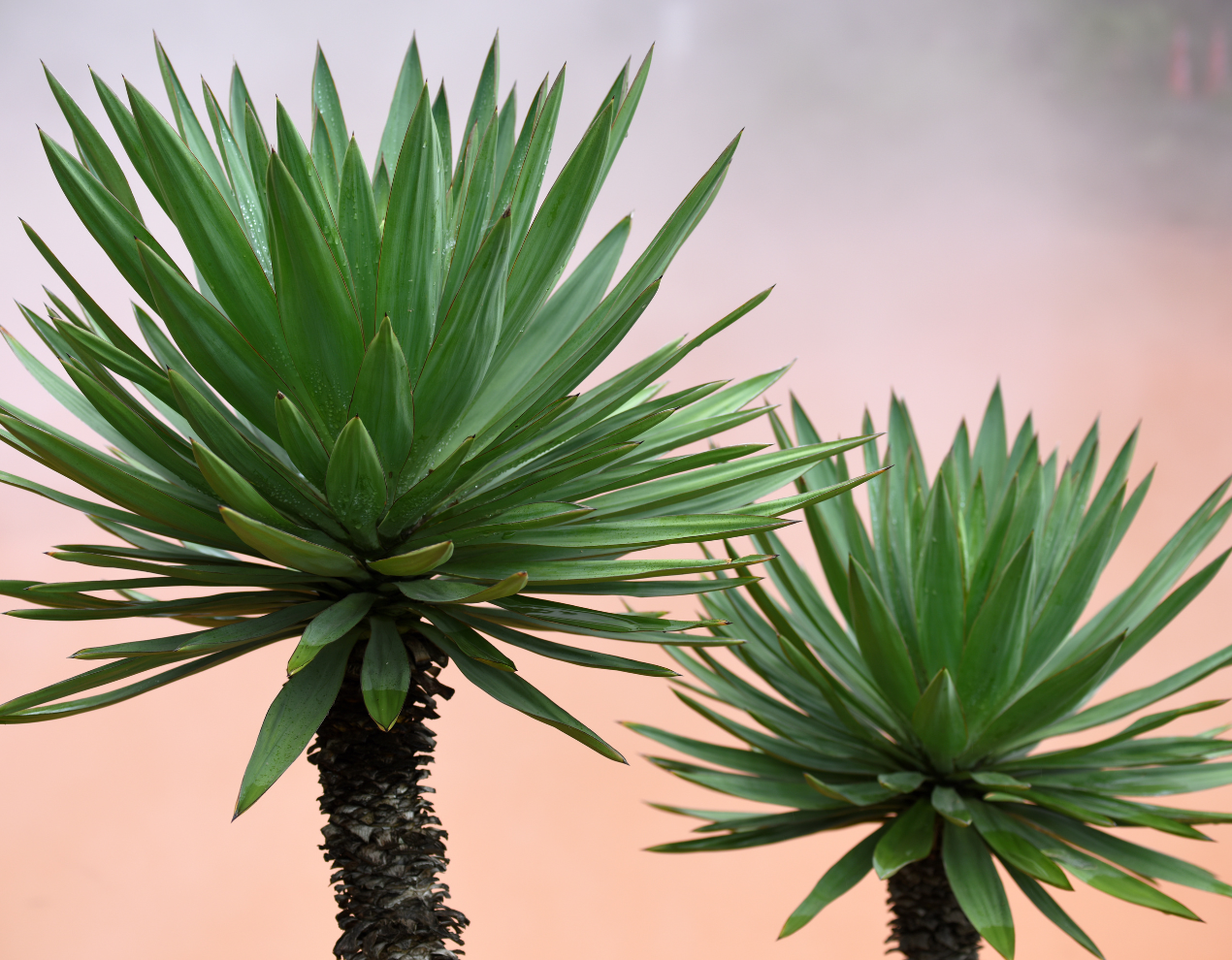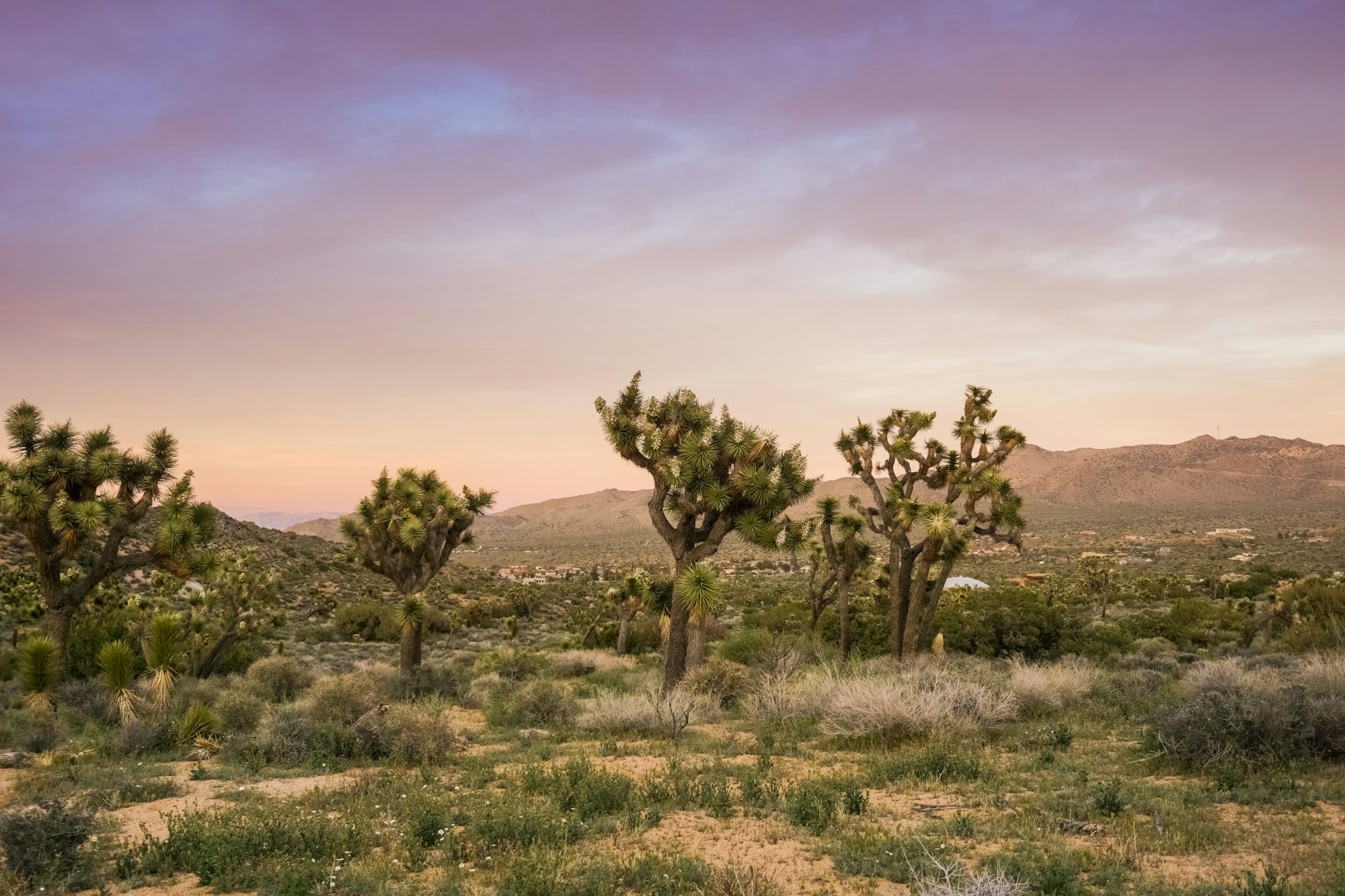Looking To Purchase?
Need Help?
Visit Us
South Mills, NC 27976
Call Us

Yucca plants, members of the Agave family, encompass over 50 species, each presenting unique forms ranging from short, grass-like to branched tree-like structures. These hardy evergreens thrive in various light conditions, from full sun to partial shade, and boast diverse leaf colors, from green to silver-gray. With varying leaf textures and quantities, some yucca species flaunt several dozen leaves, while others boast up to 100, featuring either rigid or smooth surfaces.
Yuccas may exhibit single or multiple trunks, or be trunkless, with robust, cordlike root systems. Fascinatingly, in Eastern North America, their pollination relies on a tiny white moth, which is integral to their life cycle. By day, the moth takes refuge within the yucca’s bloom, emerging at dusk to pollinate the opening flowers of the night. The moth then deposits its eggs into the yucca’s ovary, where the larvae feed on the seeds before dropping to the ground to burrow into the soil, restarting the cycle.
While yuccas and agave are primarily cultivated for their strong and flexible fiber, which finds various applications, they offer additional byproducts beyond fiber extraction.
Planting Yuccas:
Yuccas and agave planting techniques are the same. In Mediterranean climates with mild winters the timing of planting is not that critical. *Care must be taken to provide adequate watering during establishment of plant.
In hot climates where the winters are mild a fall planting is best, but if planted in the spring, plants must be carefully watered and sheltered from the how summer rays to prevent sunburn and stress. In colder climates spring planting is best.
Well drained soil to prevent roots from rot is best for most yuccas. There are some they tolerate cold, wet, tighter soils. The yucca can be easily rotted by too much organic material and clay soils. If you are in an area of tight and clay soils a raised bed is best suited for planting yuccas. An amendment of sand, crushed bricks and gravel will aid in the drainage. Successful plantings in humid climates from North Carolina to Massachusetts indicate that the yuccas can tolerate life with proper care outside their native habitats.
Usage of the Yucca:
- Fiber
- Thatch for shelters
- Food source and beverage sweetener
- Medical splints
- Alcoholic beverage
- Fence borders
- Cattle feed
- Rope
- Sandals
- Soap
- Treat symptoms of the cold and flu
- Art
- Leaves makes (Baskets, chairs, hats, & mats)
- Leave makes (Toys, paint brushes & brooms)

Cold Hardy
Yuccas Benefits

Care & Maintenance
Are yucca plants suitable for beginners?
Yes, yucca plants are excellent choices for beginners due to their hardiness and minimal maintenance requirements. They can tolerate various light conditions and are drought-resistant, making them resilient in different environments.
How often should I water my yucca plant?
Yucca plants are drought-tolerant and prefer dry conditions. Water sparingly, allowing the soil to dry out between waterings. Overwatering can lead to root rot, so it's essential to err on the side of underwatering rather than overwatering.
Do yucca plants require pruning?
Yucca plants generally do not require extensive pruning. Remove any dead or damaged leaves as needed to maintain the plant's appearance and health. Trim back spent flower stalks to encourage new growth and maintain a tidy appearance.
Yucca filamentosa (Adam's Needle)
Known for its sword-like foliage and towering flower spikes, Yucca filamentosa is a cold-hardy species that thrives in a variety of climates. Its architectural form and drought tolerance make it a popular choice for landscapes. This plant has a cold tolerance temperature of -20°F
Yucca glauca (Soapweed Yucca)
With its blue-green leaves and creamy white flowers, Yucca glauca adds a touch of elegance to any garden. This cold-hardy yucca species is native to North America and can withstand harsh winters. This plant has a cold tolerance temperature of -50°F
Yucca rostrata (Beaked Yucca):
Yucca rostrata, also known as Beaked Yucca, is prized for its striking architectural form and silvery-blue foliage. This cold-hardy yucca species is native to the southwestern United States and thrives in arid climates. This plant has a cold tolerance temperature of -20°F
Yucca baccata (Banana Yucca):
Banana Yucca, or Yucca baccata, is named for its banana-shaped fruit and distinctive rosette of sword-like leaves. This cold-hardy yucca species is native to the deserts of the southwestern United States and Mexico. This plant has a cold tolerance temperature of 0°F
Yucca thompsoniana (Thompson's Yucca):
Thompson's Yucca, or Yucca thompsoniana, features narrow, blue-green leaves and towering flower spikes adorned with creamy white blooms. This cold-hardy yucca species is native to the high deserts of the southwestern United States. This plant has a cold tolerance temperature of -10°F
Yucca glauca var. stricta (Narrowleaf Yucca):
Narrowleaf Yucca, a variety of Yucca glauca, boasts slender, blue-green leaves and tall flower spikes crowned with creamy white flowers. This cold-hardy yucca species is native to the Great Plains region of North America. This plant has a cold tolerance temperature of -35°F

